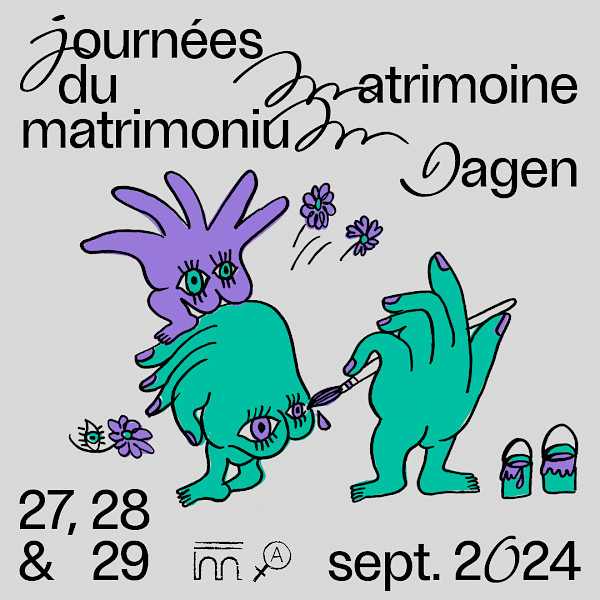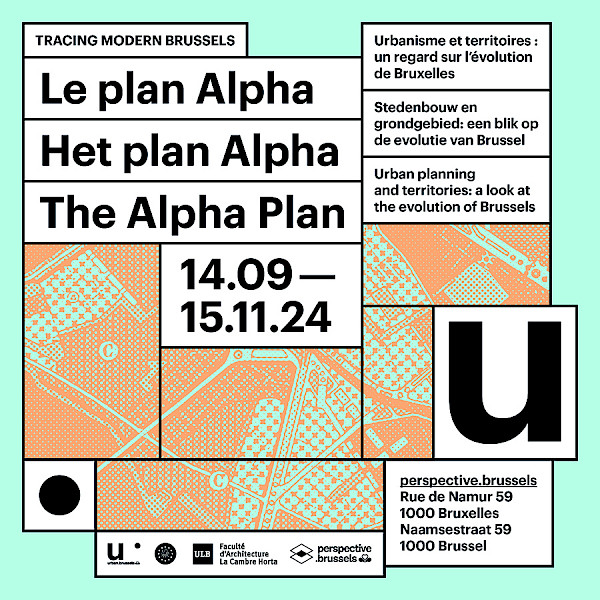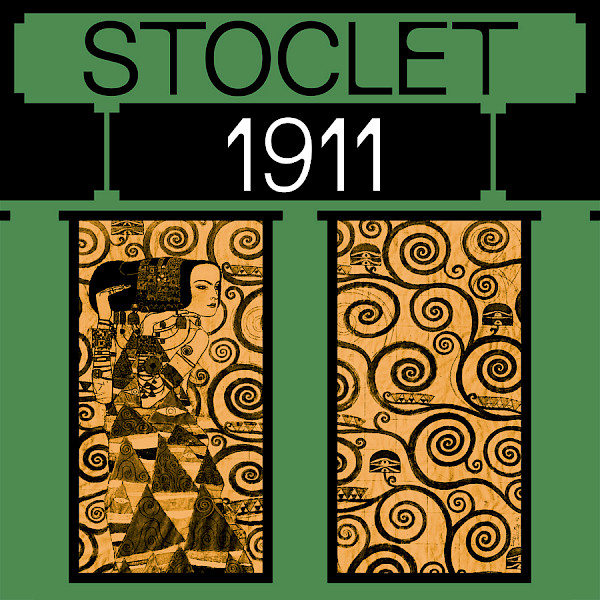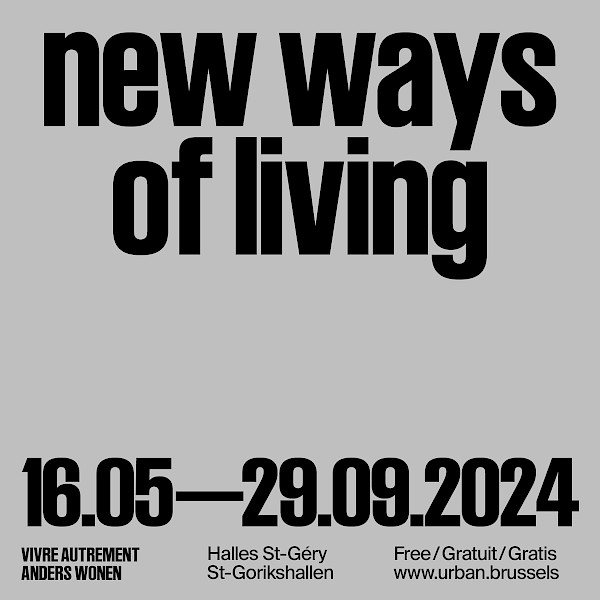… and More

Matrimony Days
This year’s Matrimony Days will take place in Brussels on 27, 28 and 29 September.
This event, which has been organised in the Belgian capital since 2019, sheds light on women’s historical legacy (referred to as ‘matrimony’) in domains such as architecture, sculpture, town planning and social affairs. Not only do the Matrimony Days provide an opportunity to explore Brussels’ current artistic, political and feminist heritage, giving visitors the chance to discover Brussels’ ‘matrimony’, which has sometimes – indeed, all too often – been overlooked, but they also involve multidisciplinary workshops (led by female experts) and tours (conducted by women who are professionals in their field) that address the fundamental question of women’s access to property ownership and the associated professions.
Organisers: L’architecture qui dégenre

Exhibition “Tracing modern brussels – The Alpha Plan”
The adoption of the organic law on urban and land use planning in 1962 led to the production of development plans, seen as the only effective instrument for achieving economic and social expansion in the country's various regions, which were divided into sectors for the occasion.
Groupe Alpha's urban planning architects were commissioned to draw up a preliminary draft for the Brussels agglomeration, after studying the capital's development within the country for almost 10 years between 1948 and 1957.
The preliminary draft is a reflection of its time, a highly technical document that demonstrates the designers' faith in the ability of modern architecture to reshape the urban landscape.
Drawn up between 1962 and 1967, then adapted by the Administration nationale de l’Urbanisme (National Urban Development Administration) until 1970, the plan was never approved, and was eventually totally abandoned in the climate of protest linked to the urban development of Brussels.
As part of Heritage Days 2024, the exhibition showcases for the first time the original project documents and some of the preliminary survey maps. These documents, preserved by Urban, allow us to trace the modern project for Brussels, which was to accompany the ongoing transformation of the capital into an international business centre.
Infos: https://urban.brussels/en/events/vernissage-exposition-le-plan-alpha

Exhibition “Stoclet 1911 Restitution”
Following its successful presentation at the Art & History Museum, the exhibition about the Stoclet House is now on show at the Halles Saint-Géry until 5 December 2024. Through this exhibition, you can discover ULB’s digital reconstruction of the interiors. The exhibition and the film came into being thanks to Urban’s funding and scientific contribution.
It took ULB’s architecture faculty and Urban several years to gather and analyse the archive documents needed to create an extraordinary virtual reconstruction of the interiors of the Stoclet House (which, unfortunately, is still closed to the public). This 3D presentation is accompanied by an exhibition focusing on the strong points (but also the grey areas) that characterise this masterpiece (World Heritage) of the Viennese Secession, which the Austrians envy us for. To mark this occasion, Urban and the Halles Saint-Géry are putting Emilie Louise Flöge in the spotlight, an exceptional woman who has been forgotten for too long. She was simplistically regarded as Gustav Klimt’s muse, but now we know that she was an important businesswoman and fashion designer, often compared to Coco Chanel. The artist Stephan Goldrajch and the photographer Myriam Rispens have paid her a fine tribute: the model of the temporary sculpture that is now gracing the avenue de Tervuren is also being presented for this occasion.

Exhibition “New ways of living”
Under the Belgian Presidency of the Council of the European Union and part of the Brussels cultural programme, Urban organises an exhibition about the challenges European cities and regions are facing to achieve an inclusive, high-quality housing policy.
European cities are undergoing a major transition to respond to socio-cultural, economic and climatic challenges, in recent years accelerated by international crises. Moreover, our society is constantly evolving to meet changing values. In recent years, we are witnessing an acceleration in the diversification of ways of living and working.
The relationship between shared space and privacy has shifted, as well as between work and collectivity.
To address this transition and for a resilient, ecological and healthy habitat, good for all, place-based with an appropriate density to reduce urban sprawl, with a proper use for the available open space, it requires creative solutions both for existing and new built environment.
Whether it is for temporary or permanent housing, the traditional way of shaping our community can no longer be the only standard. In this way, cities become laboratories for sustainable solutions for an inclusive mix of new forms of living, working and leisure that go beyond market-based models.
With new ways of living today, we contribute to the city of tomorrow.
Infos: https://urban.brussels/en/events/exposition-vivre-autrement